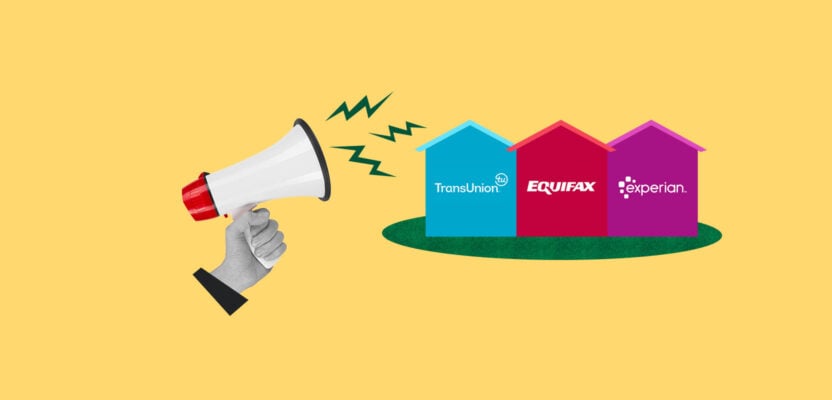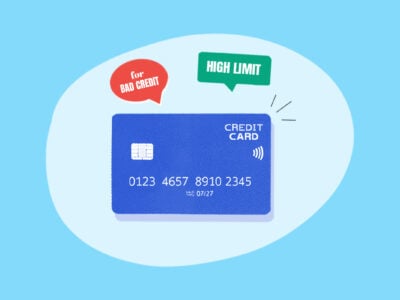Credit reporting is an important part of establishing and building credit. However, there are no laws requiring lenders to report their customers’ borrowing activities (like their credit card bill payments) to the credit bureaus. That means credit reporting—including if, when, and how it’s done—is determined by individual credit card issuers.
Find out when the major credit card issuers report to the credit bureaus and why it’s important for you to know when they do.
Table of Contents
What day do credit card companies report to the credit bureaus?
It’s common for credit card issuers to report to the three major credit bureaus (Equifax, Experian, and TransUnion) once per month. However, there’s no set day, time of the month, or even time of the year that credit card companies have to make their reports.
The timing is entirely up to the card issuer. Not only do they determine when they report, but they decide whether they want to report at all.
Some issuers only report to one or two bureaus, and others don’t report to any. Credit reporting is voluntary, so credit card companies can choose how, when, and what they disclose.
However, the majority of large credit card companies (like Capital One, Discover, and American Express) report to the three bureaus each month, around each cardholder’s statement closing date.
What’s a statement closing date?
A statement closing date is the last day of a credit card’s billing cycle.
Your statement closing date is determined by when your credit card account became active. On this day, your monthly charges will be tallied up to determine your statement balance, which is the amount due for the month.
To find out your statement closing date, check your most recent credit card statement, your online account, or your credit card’s mobile app.
How often do credit card companies report to the credit bureaus?
As mentioned, most credit card companies report to the credit bureaus on a monthly basis. However, the frequency of reporting varies by issuer.
Check the table below to find out when the most popular credit card issuers report to the bureaus.
When major credit card companies report to credit bureaus
| Credit card issuer | Reporting frequency | Credit bureau they report to |
|---|---|---|
| Capital One | Every 28–31 days, within 3 days of your billing cycle’s statement closing date | Experian, Equifax, and TransUnion |
| Citibank | Every 30 days | Equifax |
| Credit One | Every 28–31 days on or near the credit card’s statement closing date | Experian, Equifax, and TransUnion |
| U.S. Bank | Every 28–31 days, within the last week of the month | Experian, Equifax, and TransUnion |
| Chase | Every 28–31 days on your statement closing date | Experian, Equifax, and TransUnion |
| Synchrony Bank | Every month after your credit card’s statement closing date | Experian, Equifax, and TransUnion |
| Bank of America | Every 28–31 days, 3 days after your credit card’s statement closing date | Experian, Equifax, and TransUnion |
|
|
||
Can I ask my credit card issuer when they report?
If your credit card issuer isn’t listed in the table above, you might be able to find out when they report to the credit bureaus by simply asking them. Look on their website for their customer service line and give them a call (or email them).
They probably won’t be able to give you a precise date, but there’s a good chance they’ll give you an approximate one, e.g., “we report within the last week of the billing cycle.” Either way, there’s no harm in asking.
If my credit card issuer doesn’t report to the credit bureaus, can I ask them to?
Unfortunately, you can’t ask a credit card company to report to the credit bureaus.
Because credit reporting is entirely voluntary, you have no control over whether or not your credit card issuer reports, when they report, or what information they report. If an issuer has decided they don’t want to deal with the hassle of reporting, you’re unlikely to convince them otherwise.
If you’re trying to build credit and your current card issuer doesn’t report, consider switching to a credit card issuer that does. Credit reporting is an essential component of credit building, as the information that’s reported is used to update your credit report, which is then used to calculate your credit score.
Why knowing when credit card companies report to credit bureaus is important
Knowing when your credit card issuer reports to credit bureaus helps you in two ways:
1. You’ll be more knowledgeable about your credit report
Understanding your credit report can help you spot incorrect information and monitor your credit-building progress. If you know roughly when your information will be updated, it will help you pull your credit report at opportune times and put what you see into context.
If you spot any information you think is inaccurate, dispute the errors on your credit report immediately.
2. Pay your credit card at the right time
If you’re using a credit card to build credit, you can help your progress by paying your credit card bill at the right time every month. Paying according to your issuer’s credit reporting schedule can improve two important factors in your credit score:
- Payment history: The payment history on your credit report is the single most important metric in your credit score. Always pay your credit card bills on time to maintain a sparkling payment history. If your card issuer reports your payments, making one before the date that they report will ensure your responsible borrowing is reflected in your credit report.
- Credit utilization rate: Your credit utilization rate is how much of your credit you’re using at a given time. To keep a low rate (under 30%), you need to have a low credit card balance reported each month. If your card is maxed out when your issuer reports your balance, your credit utilization rate will be higher, but if you pay down your balance by the day they report (e.g., your statement closing date), your credit utilization rate will be lower, which is good for your score.
Paying your credit card bill (or at least part of it) before the reporting date likely means paying your bill long before the due date. Not only can this benefit your credit score, but it helps ensure that you’ll pay your balance off on time and avoid late fees and penalty APR.






